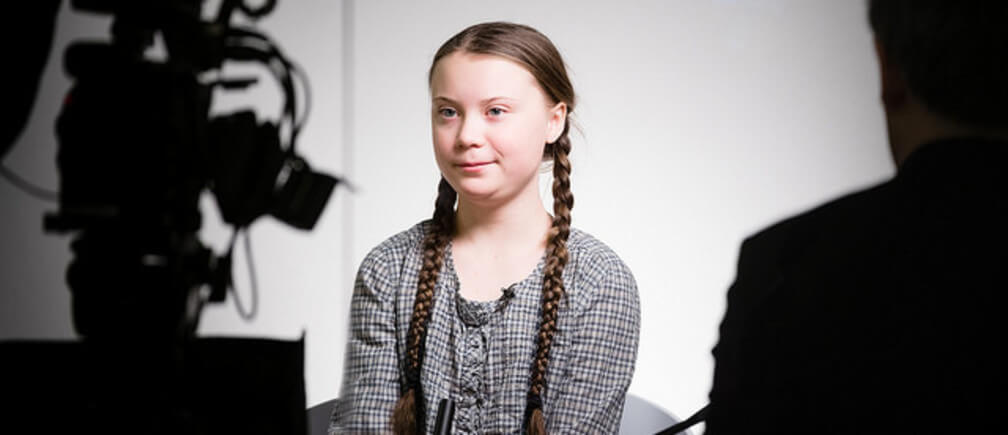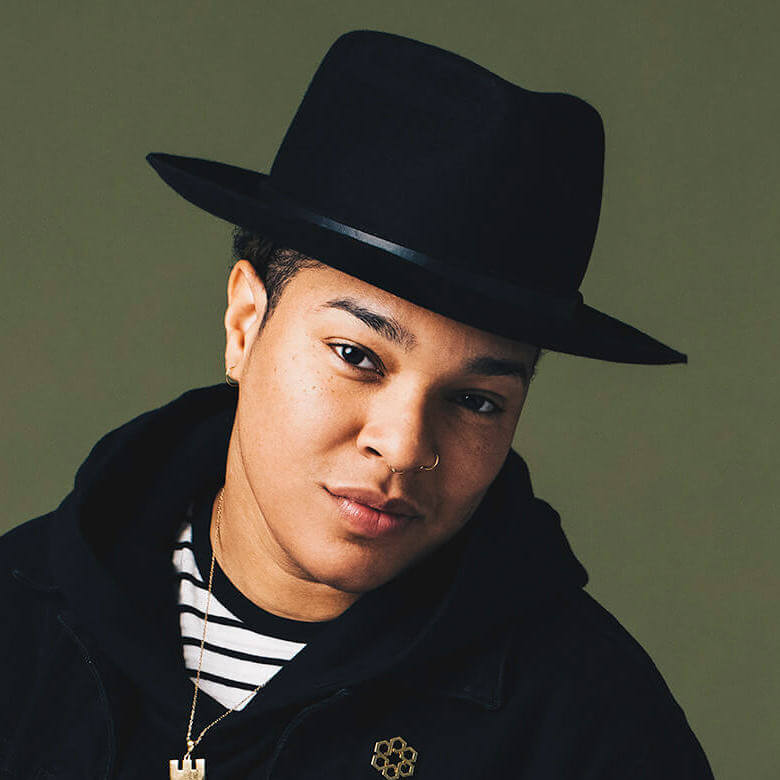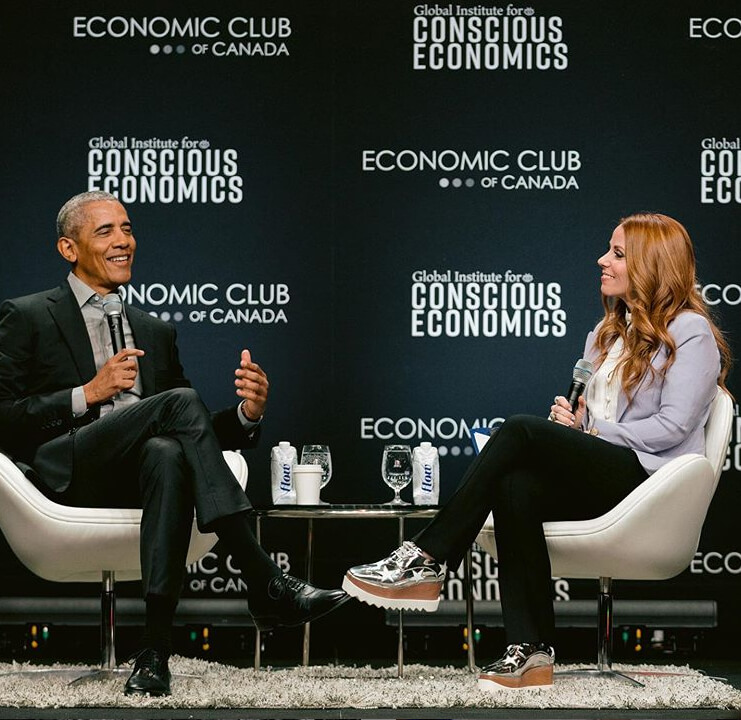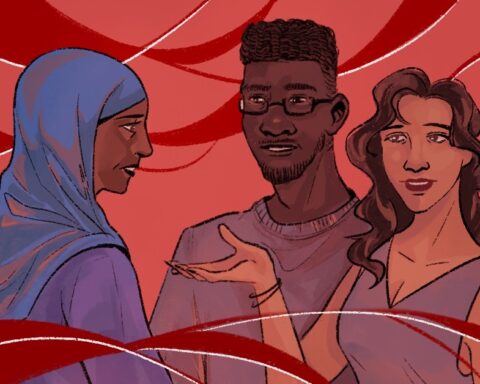I was a teenager in 2008. Fourteen to be exact. I’d just started high school, my mother was teaching English in Japan, and Barack Obama was running in his first presidential election.
On election night, mom called the house to make sure that my sister and I were watching as the results flooded in. She mentioned several times that this was a historic moment, and she was clearly excited. At the time, I didn’t know I wanted to be a journalist, so news and politics didn’t interest me much. I’d heard Young Jeezy’s “My President is Black” and seen the now-iconic Shepard Fairey “Hope” poster, but the magnitude of the night was lost on me.
Yesterday, the significance of Obama and his 2008 campaign dawned on me as I sat in a packed Metro Toronto Convention Centre. More than 6,000 people gathered at the “Future Skills: A conversation with President Barack Obama” forum hosted by the Economic Club of Canada and the Global Institute for Conscious Economics. A joint statement from the two groups read: ”The Economic Club of Canada & The Global Institute for Conscious Economics are dedicated to fostering a new economic dialogue in Canada that promotes equality, inclusion, and the voices of multiple generations around the same table.” To support that, the event boasted a 1:1 ratio, meaning that for every ticket purchased, a ticket was given to a young black leader under 30 so they could attend. It was refreshing to look around the room and see children sitting in their parents’ laps listening attentively to all the speakers, on a school day no less.
Youth Lead the Way

“Because she speaks for a generation that is going to have to deal with this mess in a way that somebody like me, who’s 58, is not going to. And if the older folks aren’t willing to make those changes, then get rid of them (by voting them out of office),” Obama added.
Kiana “Rookz” Eastmond, entrepreneur and founder of Sandbox Studios, a recording studio in Toronto, touched on the power and potential of young people in her opening address. “Shout out to all the young people here today because you’re not supposed to be here,” she joked. Eastmond shared a touching story of how she left home and dropped out of school at 16, then ended up creating her dream career, winning awards and eventually finding herself giving the opening remarks at an event featuring the first black president of the United States.
For Eastmond, the significance of the occasion wasn’t just about a personal accomplishment, it was about visibility. Growing up outside Toronto in Scarborough, she said she never imagined living the life she lives now, but now that she is, she wants to set an example.

“The power of being seen means you have the power to amplify those that are not seen and cannot see themselves,” said Eastmond.
The story moved Eastmond to tears and gave rise to thunderous applause from the audience. “It’s amazing what happens when people believe in you,” she said. “Take a moment every single day to think about that. Don’t leave here without opening the door for someone else.”
To solve the problems that people all over the world are facing — climate change, the mental health crisis, economic instability — we’re going to need compassion, creativity and connection, Obama told the crowd.
“How do we make sure everybody who’s a part of this effort feels heard and feels like they’re contributing?” Obama asked.
Diversity and the Way Forward
During his presidency, Obama wanted diversity in his team, but not just in terms of racial identity and not just for the sake of optics. He wanted the people on his team to be individually excellent and diverse in the ways that they tackled problems so that all blind spots were covered. Rosalind referred to this leadership style as “conscious leadership.”
According to Rosalind, there needs to be a more holistic approach to solving these larger economic issues. In a joint statement by The Economic Club of Canada & The Global Institute for Conscious Economics, they said, “We believe that the ‘Future of Work’ in Canada must be defined by ALL Canadians. The ‘New Economy’ must honour the physical and mental well-being of our people, as well as the planet, while also promoting economic prosperity and sustainability.”
Rosalind called this process the feminization or indigenization of the economy. She said, “For too long we’ve been operating unconsciously which has lead to an imbalance of people, planet and profit.”
It’s clear that the world is rife with imbalance and a myriad of destructive events from the wildfires devastating Australia, to escalating tensions between the United States and Iran. However, what’s clear to me from the Obama forum is that despite the fact that things look bleak, there is still hope.
While some of the people in attendance at the Future Skills talk were certainly there to see the 44th president of the United States, I’ll willing to bet that everyone in the Metro Toronto Convention Centre cares about the issues discussed and is willing to work towards solutions. And I do mean everyone. As I scanned the crowded room there were artists sitting next to politicians, CEOs with groups high school students; there was diversity in age, race and gender. And as one speaker pointed out, if you look around “you’ll notice that we have more in common than we do differences.”
That is the epitome of the audacity of hope. It’s the boldness to believe in your resolution and having the courage to support it in your thoughts and in your actions, despite the difficulty of the task or the discomfort it may cause. Despite the enormous challenges we face with the economy, the climate crisis and our own personal battles with mental health, I can’t help but have hope that if we truly work together on solutions that benefit everyone, we can overcome the problems we face.
Marcus is a poet, editor and freelance journalist based in Toronto. He currently works with New Canadian Media as an Editor and as a Freelance Writer for ByBlacks.com, The Edge: A Leader's Magazine and The Soapbox Press.



